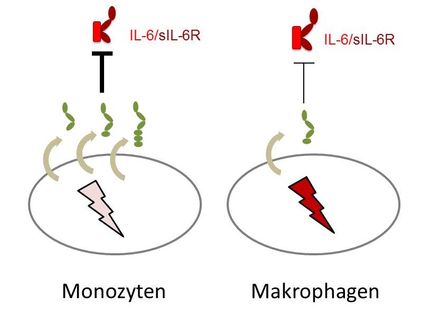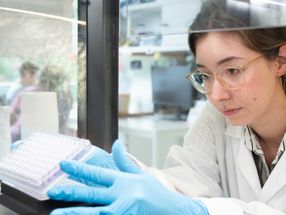MorphoSys Presents Promising Animal Model Data from its Preclinical Antibody Candidates
Advertisement
MorphoSys AG announced today that the first promising animal data from preclinical studies for its anti-inflammatory antibody programs MOR101 and MOR102 have been presented at the Human antibodies & Hybridomas Conference in Osaka, Japan. The antibody programs MOR101 and MOR102 target ICAM-1, a cell adhesion molecule involved in several inflammatory diseases including psoriasis, rheumatoid arthritis and dermal burn. MOR101 and MOR102 are currently in preclinical development for deep dermal burn (second degree burn) and psoriasis.
In clinical trials conducted several years ago, Boehringer Ingelheim found first preliminary evidence for the usefulness of a mouse antibody BIRR-1 (enlimomab) against ICAM-1 in deep dermal burn and rheumatoid arthritis. MorphoSys has to-date completed the in vitro profiling for MOR101 and MOR102, and both antibodies, which were generated from MorphoSys´ HuCAL® GOLD antibody library, demonstrated potency equivalent to the Boehringer Ingelheim murine antibody.
MOR102, a HuCAL® IgG4 antibody, initially will be developed for the treatment of psoriasis, a chronic inflammatory disorder. In an in vivo human psoriatic skin xenotransplant model conducted in collaboration with Prof. Boehncke, Department of Dermatology at the University of Frankfurt, proof of principle was demonstrated for the antibody. The data showed that treatment with MOR102 reduced psoriatic epidermal thickness by 40% in mice carrying transplants of human psoriatic skin.
In its antibody program MOR101, MorphoSys is developing a human HuCAL® Fab fragment for the treatment of deep dermal burn. In an initial animal model conducted in collaboration with Prof. Dr. Dr. Pallua and Dr. Fuchs, Clinic for Plastic Surgery at the University of Aachen, a chimeric Fab fragment derived from the murine BIRR-1 proved to be as potent as the immunoglobulin BIRR-1 antibody. As a result of these positive data, MorphoSys now plans to further develop its proprietary programs MOR101 and MOR 102.
The fully human HuCAL® antibodies against ICAM-1 are expected to have excellent efficacy profiles in these inflammatory disorders while having none of the immunogenic side effects associated with the mouse antibody. Moreover, the antibodies are expected to suppress inflammation directly at the site of inflammation, as opposed to being systemically immune suppressive. As such, systemic immune suppressive side effects could be minimized.
"We believe that ICAM-1 is a very promising target for the treatment of a number of inflammatory conditions", commented Dr. Simon Moroney, Chief Executive Officer of MorphoSys AG. "This belief is underpinned by the data generated by Boehringer Ingelheim with BIRR-1 in the clinic. We are excited about the initial pre-clinical results on both of our proprietary programs and will continue to generate additional data on MOR101 and MOR102 as we look to partner them for further development".
Other news from the department business & finance
Most read news
More news from our other portals
See the theme worlds for related content
Topic world Antibodies
Antibodies are specialized molecules of our immune system that can specifically recognize and neutralize pathogens or foreign substances. Antibody research in biotech and pharma has recognized this natural defense potential and is working intensively to make it therapeutically useful. From monoclonal antibodies used against cancer or autoimmune diseases to antibody-drug conjugates that specifically transport drugs to disease cells - the possibilities are enormous

Topic world Antibodies
Antibodies are specialized molecules of our immune system that can specifically recognize and neutralize pathogens or foreign substances. Antibody research in biotech and pharma has recognized this natural defense potential and is working intensively to make it therapeutically useful. From monoclonal antibodies used against cancer or autoimmune diseases to antibody-drug conjugates that specifically transport drugs to disease cells - the possibilities are enormous




























































